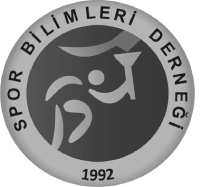Conflicts-of-Interest Statement
Editors
Editors should be responsible to manage the review process and have the right of declining any submission in case of any conflict-of-interest. They should not have any direct personal and/or financial conflicts with their assigned manuscripts. They should not be assigned to manuscripts if they are on the author list.
Reviewers
Reviewers should be responsible to decline the review process if any substantial conflicts-of-interest exists. In case of any doubt, they should consult the Editor to make a decision regarding the review process. Researchers from authors' institutions should not be considered as peer reviewers to prevent any conflicts-of-interest.
Authors
According to the general publication policy of the Turkish Journal of Physical Education and Sports Teaching (TJPEST), only the researchers who contributed to the work in a real sense should be considered as an author. Authors should be responsible to disclose all the personal and financial relationships which might bias their work. Financial relationships such as employment, consultancies, stock ownership, honoraria, paid expert testimony can be classified as the most easily identifiable conflicts-of-interest and the most likely to undermine the credibility of the journal. To clarify the conflicts-of-interest issues, authors must submit a letter to the editorial office accompanying the submitted manuscript and explicitly state if any potential conflicts exist or not.
NOTE: What to do in case the author in the Editorial Board submits an article:
1. The article will be evaluated regardless of the researcher's position.
2. All authorizations of the researcher for that issue are suspended and access to the journal's interface is blocked.
3. The researcher is not authorized to suggest referees.
4. The researcher's article will be continued in accordance with all publication policies during the peer review process.
Update: 04.10.2024


